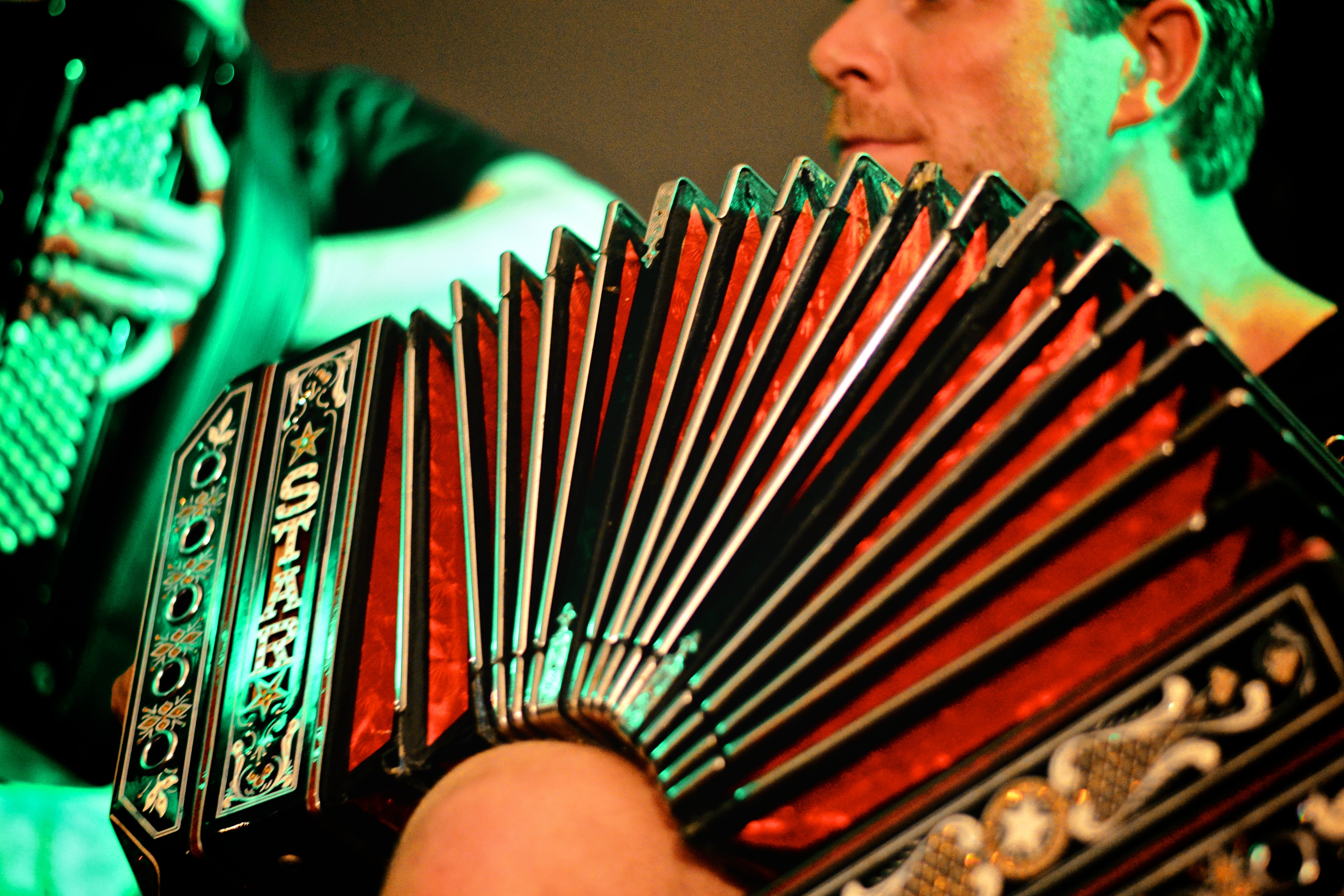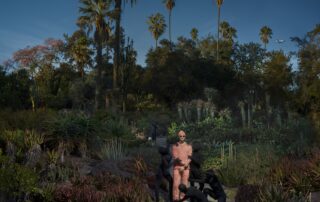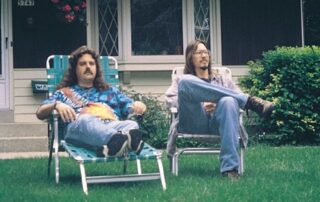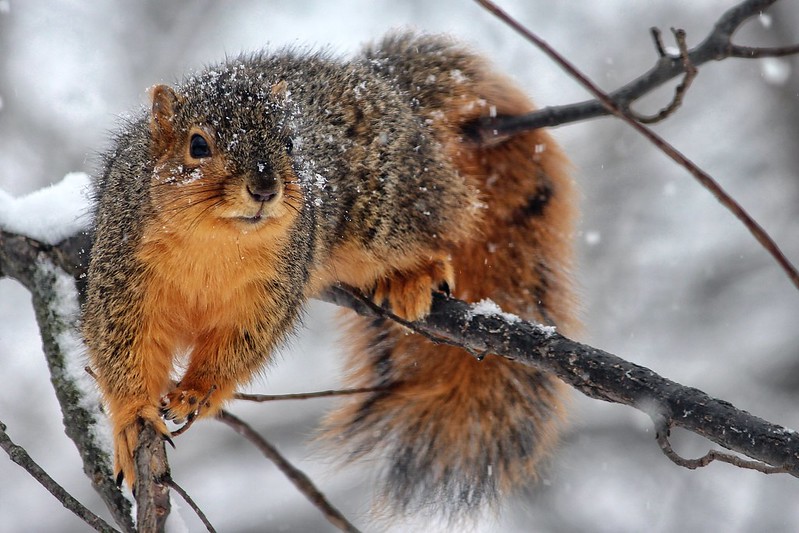Polka always left writer Alex Bledsoe cold. That is until he discovered the musical connection between his old home in Tennessee and his new home in Wisconsin.
Music is a huge part of most of my novels. Often I write about musicians, songwriters, their songs, and the effect they all have on the rest of us. But I’m no musician myself: if real music is, as Harlan Howard said, “three chords and the truth,” then I know “two chords and some gossip.” But I love music, and I try to constantly expose myself to new things.
One of those new things is the official music of the Midwest, polka. Before moving to Wisconsin from Tennessee, what little I knew about polka was filtered through Weird Al Yankovic, whose early parody work featured the polka’s best-known instrument, the accordion.
Up until now, my experience with folk music has been tied to the Scotch-Irish songs that traveled over and settled, along with my paternal ancestors, in Appalachia. Polka, with its eastern European roots, always felt a little harsh and off-putting.
Luckily, I’m backdoor neighbors with James P. Leary, a folklorist who has just put out the monumental book “Folksongs of Another America,” an encyclopedic collection of every sort of Midwestern folk, including the polka. Jim and I have done some readings together, and through him, I got to hear author Rick March, whose most recent book is “Polka Heartland.”
On page 36 March writes:
“In 1863, to commemorate the defense of Charleston, SC, after a sixty-day US naval siege, a Columbia, South Carolina, music publisher, B. Duncan and Company, issued ‘Battery Wagner Polka-Mazurka,’ with a cover lithograph of the cannons and defensive earthworks at Fort Wagner, a key emplacement in Charleston’s defense. In a business circular dated July 27, 1863, Duncan wrote, ‘We have made arrangements to be constantly supplied through the blockade with the latest European music of merit and will publish it as soon as received.’ It seems polkas were among the essentials smuggled into the south.”
And there it was: the connection between the place I grew up and my adopted state. They both come together in the story of…polka smugglers.
I’m learning to appreciate the music of the Midwest, thanks to Jim and Rick. It’s a bit like learning a foreign language, both literally, since many of the songs are in various dialects, and figuratively, since the atmosphere is so different. The folk songs of Appalachia are about longing and solitude, invoking isolated cabins and rolling mountains; the polka is about community, and conjures up crowded basements and packed taverns.
And yet, when you think about it, there’s not that much distance, spiritually speaking, between the Appalachian classic “The Five Nights’ Drunk” and polka’s “In Heaven There is No Beer.” So I think I’ll get there.








